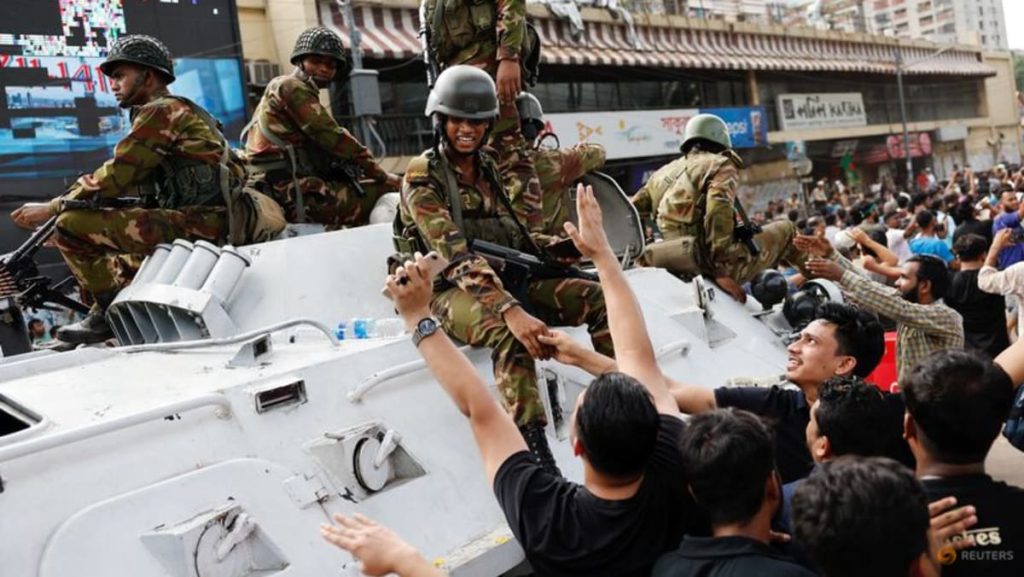Summarize this content to 2000 words in 6 paragraphs DHAKA: Bangladesh’s parliament was dissolved on Tuesday (Aug 6), the president’s office said in a statement, a day after Prime Minister Sheikh Hasina resigned and fled the country following violent protests demanding her ouster.
The announcement came hours after protesting student leaders set a deadline to dissolve parliament and warned a “strict programme” would be launched if their deadline is not met.
They had demanded Nobel winner Muhammad Yunus lead a caretaker government, a day after the military took control.
Hasina, 76, had been in power since 2009 but was accused of rigging elections in January and then watched millions of people take to the streets over the past month demanding she quit.
Hundreds of people died as security forces sought to quell the unrest, but the protests grew and Hasina finally fled Bangladesh aboard a helicopter on Monday as the military turned against her.
Army chief General Waker-Uz-Zaman announced on Monday afternoon on state television that Hasina had resigned and the military would form a caretaker government.
“The country has suffered a lot, the economy has been hit, many people have been killed – it is time to stop the violence,” said Waker, shortly after jubilant crowds stormed and looted Hasina’s official residence.
Waker was expected to meet student leaders on Tuesday, to hear their demand for the 84-year-old microfinance pioneer Yunus to lead the government.
“IN DR YUNUS WE TRUST”
The student leaders had said in a video on Facebook that parliament should be dissolved by 3pm on Tuesday and asked “revolutionary students to be ready” if that did not happen.
This call is echoed by the key opposition Bangladesh Nationalist Party (BNP), which has demanded elections within three months.
“In Dr Yunus, we trust,” Asif Mahmud, a key leader of the Students Against Discrimination (SAD) group, wrote on Facebook.
Yunus has not commented on the call, but in an interview with India’s The Print, he said Bangladesh had been “an occupied country” under Hasina.
“Today all the people of Bangladesh feel liberated,” it quoted Yunus as saying.
Streets in Dhaka were largely peaceful on Tuesday – with traffic resuming and shops opening, but government offices mainly closed – after a day of chaotic violence saw at least 113 people killed.
Millions of Bangladeshis flooded the streets of Dhaka to celebrate after Waker’s announcement on Monday.
“I feel so happy,” said Sazid Ahnaf, 21, comparing the events to the independence war that split the nation from Pakistan more than five decades ago.
“We have been freed from a dictatorship.”












